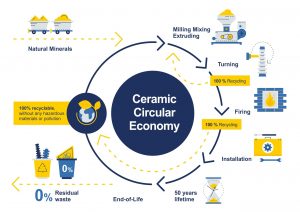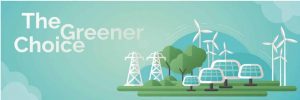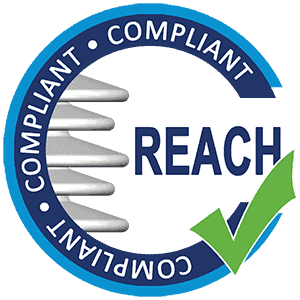
Continuación con las iniciativas de las plantas en apoyo del bienestar de los empleados.
Seguir mejorando las condiciones de trabajo, las áreas sociales y los baños.

Continuación con las iniciativas de las plantas en apoyo del bienestar de los empleados.
Seguir mejorando las condiciones de trabajo, las áreas sociales y los baños.

Apoyando la electrificación del mundo con aislantes de porcelana, sencillos y ecológicos.
Pasando a utilizar biometano en lugar de gas natural en el proceso de cocción.

Ahorro de materiales al proveer aislantes de extrema longevidad.
Abastecimiento sostenible mediante el código de conducta de los proveedores, que se ampliará a la huella de carbono de alcance 3.

Acciones para reciclar el 100% (o compensar) los residuos no productivos en las plantas.
Promover las opciones locales de reciclaje para evitar el transporte innecesario de materiales reciclables.

Uso de biometano en lugar de gas natural en el proceso de cocción.
Gestión del calor más eficiente en los hornos.
Seguir migrando a sistemas de iluminación basados en LED.
Objetivo para 2030: cero emisión de dióxido de carbono.
Meta 2030 - zero emissão de dióxido de carbono.
Una economía circular se basa en los principios de eliminación de residuos y de la contaminación; el mantenimiento de los productos y materiales en uso y la regeneración de los sistemas naturales.
En una economía circular, los ciclos de los materiales están cerrados. No hay desperdicio porque cada flujo residual puede usarse para hacer un nuevo producto. En este sistema, sin embargo, no sólo es importante que los materiales se reciclen adecuadamente, sino también que los productos, componentes y materias primas mantengan el alta calidad en estos ciclos.
Los aislantes cerámicos son, por naturaleza, ecológicos y se ajustan plenamente a esta filosofía. La Economía Circular de la Cerámica presenta los siguientes principios representados por los aisladores de porcelana:
Para saber más sobre el hecho de que los aislantes de porcelana son una opción más ecológica, consulte aquí

A finales de 2020, el Grupo PPC Insulators ha recibió una carta abierta de los 7 principales operadores de sistemas de transmisión europeos:
Tenne T (Netherlands, Germany)
National Grid (Greait Britain)
Esta carta presenta la invitación al Grupo PPC Insulators para unirse a ellos em uma ruta más ecológica.

As Transmission System Operators (TSO), we are at the center of the energy transition of our societies and economies towards a more sustainable and carbon-free world. Our mission is to ensure that we provide sufficient capacities for the transport of renewable energies, while ensuring reliability of critical network infrastructures at affordable costs for our customers. We owe this to the societies we serve.
Yet, as the transition towards a more sustainable economy continues, more and more elements of our core business are affected by this transition—from the way we interact, move and produce to the way today’s demands is shaping tomorrow’s supply. Thus, as TSOs, our responsibility has grown far beyond our traditional objectives. Today, we must also reflect on the choices we make when buying the materials and services that are essential to our operation.
The international momentum of investments into more sustainable products provides us with the certainty that we are only at the beginning of a global transition. A growing societal responsibility demands of each enterprise—public or private—to contribute towards this common objective. As European utilities, we must lead the way in this transition and attempt to be at the forefront of green investments. As Purchasing Departments, we play a significant role in this ambition. This means paying increased attention to the environmental, biodiversity, circular economy and social impact of the equipment and services we buy – simply put: making a greener choice. We welcome and promote new ideas to fulfill conventional needs with innovative solutions. We are convinced that almost all aspects of our business will become ”greener” and more sustainable by revising the technologies and methods, investing in innovative digital technologies (5G, AI) to allow electricity networks to play their role as a “central nervous system” of the electricity system.
All suppliers—established and new—are encouraged to contribute to this evolution. We will take into consideration this new trend in our future selection and / or awarding criteria’s.
Furthermore, we strive to gain a deeper insight into the environmental footprint and social impact of the products and services we purchase. We do this with the long-term objective to encourage those suppliers who are able to make measurable reductions in this regard.
Lastly, as TSOs, we are jointly urging and will incentivize our partners to set up sustainability targets. Simultaneously, we recognize that our suppliers rely on a clear signal from the European market, setting the path for the coming decades in order to ensure the necessary investments.
With the present letter, we seek to confirm our engagement to support this transition and encourage our existing and future suppliers to take decisive action for a more sustainable and resilient world tomorrow.
Dear TSO’s
As a supplier to you and many other TSO’s around the globe it is with great pleasure we received your letter referenced above. Our spontaneous comment after studying its content is “GREAT!”. PPC has since long encouraged the large players (TSO and OEMs) in the T&D industry to include sustainability and overall lifetime cost (economical and environmental) when selecting products/suppliers rather than solely focusing on low cost initial price.
Referencing again your letter and the section where you welcome suppliers to promote new ideas. We will contact your local representatives for a meeting (or VC) to explain what PPC Insulators is already doing in this regard and what more we can achieve by working closely together. To succeed, investment in both time and money is required. PPC is already doing both. We expect this investment to pay-off and look forward to learning how you will evaluate products/suppliers not only based on lowest offered price but also from a sustainability perspective.
To give you a flavor of our ambitions. By ways of compensating, in partnership with ClimateCare ltd, PPC Insulators was already Carbon Neutral (Kioto Scope 1 and 2) in 2019. Going forward we are examining how to achieve full Carbon Neutrality (without compensation) by 2030. The path to neutrality is the sum of many steps of which the major ones include advanced degree of heat-recuperation and use of green fuels in all manufacturing processes.
With regards to another key aspect of the circular economy, re-use, we already today have virtually no waste in the production and all delivered products are 100% recyclable. For your reference we attached a white paper “Porcelain Insulators are naturally green”
Thanks for taking this initiative and we look forward to constructive dialogue with your various teams. As PPC Insulators we are for sure ready to join you in making a Greener Choice!
Erik Göthlin
CEO PPC Insulator group
Vienna 2021-01-31
Attached: PPC White Paper “Porcelain Insulators are Naturally green”
Todos los aisladores de porcelana PPC son de porcelana aluminosa C130, fabricados a partir de materiales naturales, incluyendo arcilla, caolín, feldespato, alúmina y sílice. Esas materias primas y minerales no figuran en las listas RoHS – Restricción de ciertas sustancias peligrosas y SVHC – Sustancias Altamente Preocupantes. Los accesorios y bridas usados por la PPC se fabrican principalmente de material fundido, hierro o aluminio, que no figuran en la lista de minerales o sustancias altamente preocupantes – SVHC. Ningún material peligroso se genera como subproducto del proceso productivo y no hay efectos graves o crónicos al ambiente.
PPC se ha comprometido a supervisar la evolución de la lista de sustancias altamente preocupantes y está preparada para tomar las medidas necesarias si es necesario.

